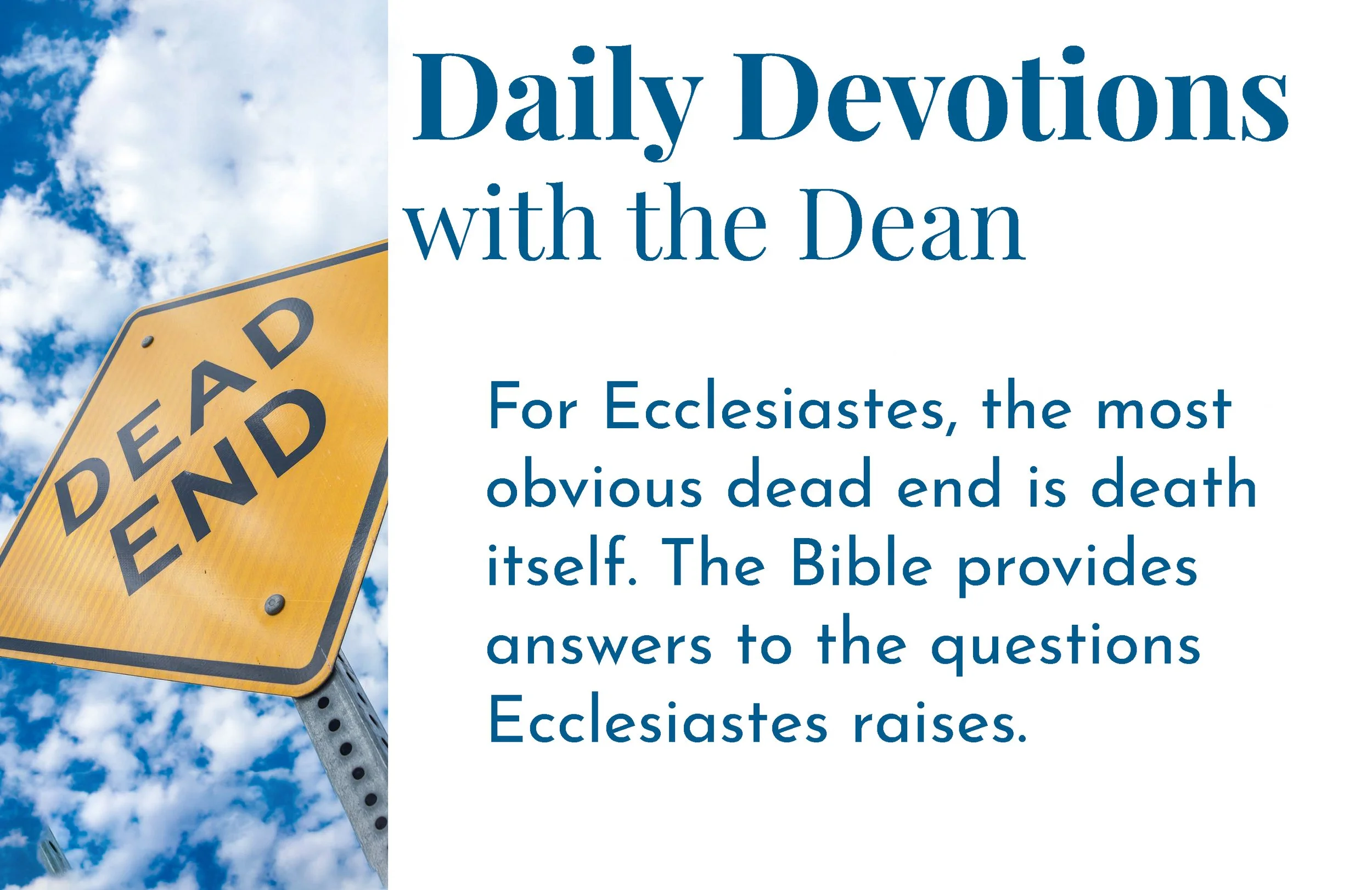Thursday • 6/6/2024 •
Thursday of the Second Week After Pentecost (Proper 4)
This morning’s Scriptures are: Psalm 50; Ecclesiastes 3:16–4:3; Galatians 3:1-14; Matthew 14:13-21
This morning’s Canticles are: following the OT reading, Canticle 8 (“The Song of Moses,” Exodus 15, BCP, p. 85); following the Epistle reading, Canticle 19 (“The Song of the Redeemed,” Revelation 15:3–4, BCP, p. 94)
Today is the Wednesday following Trinity Sunday. This week, we are contemplating passages from Proper 4 — I want to give some attention to the early chapters of the Book of Ecclesiastes and of Paul’s letter to the Galatians.
Death & “life under the sun.” For Ecclesiastes, the most obvious dead end is death itself. In the face of death, according to the writer, the best that human observation can offer—the best that we who live “under the sun” can surmise—is: “Who knows whether the human spirit goes upwards and the spirit of animals goes downwards to the earth?” (Ecclesiastes 3:21). If animal existence is all there is, you cope in resignation, just going about your business oblivious to any larger question. And perhaps you raise a glass to the dead or the not-yet-born for not having to lay eyes on a world where the oppressors have power and the oppressed have only tears. Who knows, asks Ecclesiastes, if there’s any point at all to life “under the sun”?
Image: adaptation, Pixabay
“Who knows, indeed?,” responds the Catholic philosopher Peter Kreeft, “Here under the sun, no one. Unless there should appear here under the sun a man who came from beyond the sun, beyond the horizon of death’s night—unless we saw the Rising Son. But Solomon had not yet seen that man….” (Three Philosophies of Life [Ignatius Press, 1989, p. 47).
The rest of the Bible, observes Kreeft, provides answers to questions that the book of Ecclesiastes raises: Who knows? What’s the point? Because the rest of the Bible has seen the Man who came from beyond the sun.
Matthew has seen the Man from beyond the sun. Thus, in our reading today Matthew describes the day the Man from beyond the sun multiplies loaves and fishes to feed people with physical hunger, prefiguring a sacred sustenance for souls. “Taking the five loaves and two fish, he looked up to heaven, and blessed and broke loaves, and gave them…” (Matthew 14:19). Jesus uses the same actions here that he will use at the Last Supper. Matthew 26:26 recounts, “While they were eating, Jesus took a loaf of bread, and after blessing it he broke it, gave it to the disciples, and said, “Take, eat; this is my body.” Matthew wants us to know that these physical provisions are gifts in promise of spiritual nourishment for bearers of the eternal, divine image. We are not soul-less animals!
Paul, too, has seen the Man from beyond the sun—the Man who shook off the curse of death, who reversed death itself. That is why in yesterday’s reading in Galatians, Paul speaks of being crucified “with Christ.” He declares, “It is “no longer I who live…,” meaning, to paraphrase Ecclesiastes, “I no longer live ‘under the sun’,” (that is, with futility and without purpose). He continues, “…it is Christ who lives in me. And the life I now live in the flesh I live by faith in the Son of God, who loved me and gave himself for me” (Galatians 2:20).
And so, in today’s passage from Galatians, Paul rejoices because Jesus’s seemingly meaningless death—which was both like, and unlike, so many other seemingly meaningless deaths before and after his—becomes promise and hope and purpose. It is God’s blessing for Gentiles as well as for Jews (Galatians 4:3). Which is to say, it is for everybody who will believe—for all who refuse to let their horizons be defined by what is observable “under the sun,” and who say instead, “Yes!” to the Rising Son.
I pray you say “Yes!” to Jesus today.
Be blessed this day,
Reggie Kidd+



